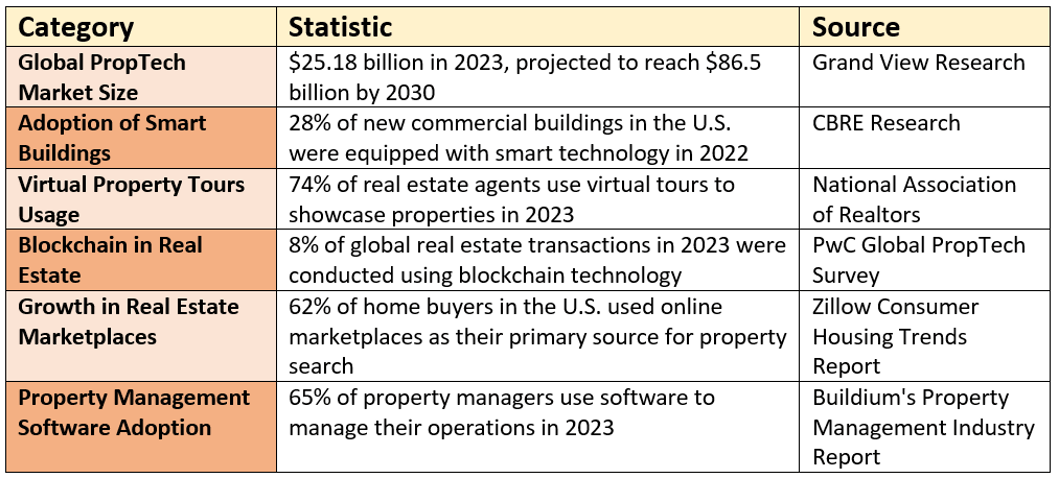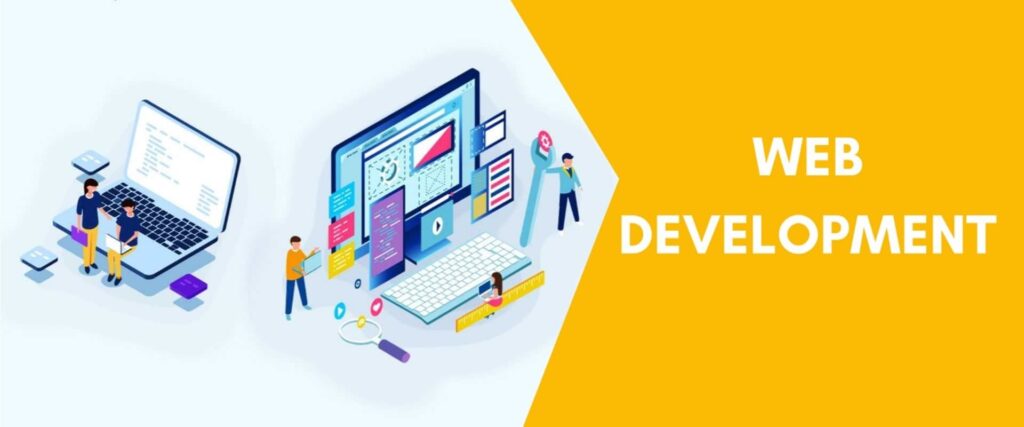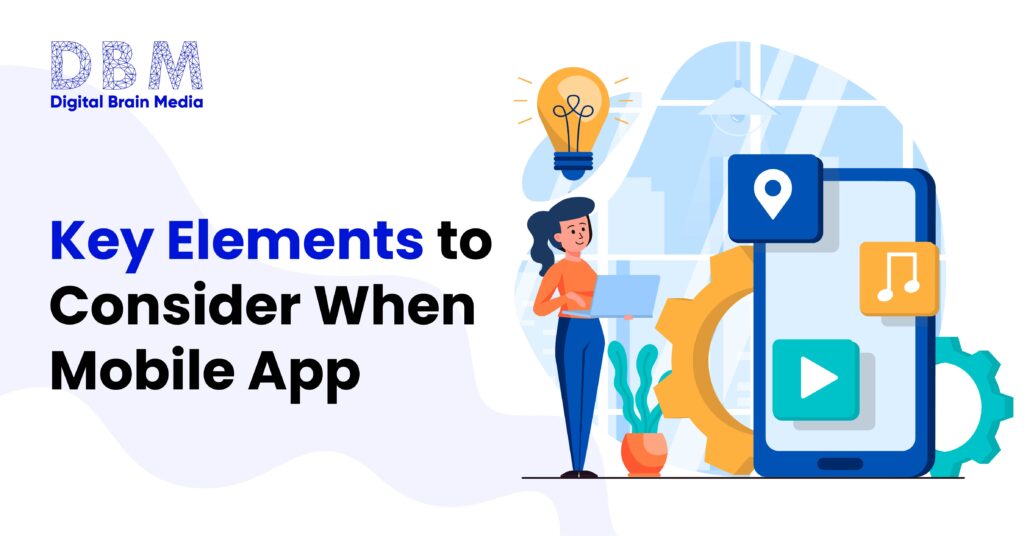How is Proptech Transforming the Real Estate Industry?
- user3
Introduction

The real estate industry is undergoing a remarkable transformation thanks to PropTech—the integration of innovative technologies into property management and transactions. Over the years, real estate technology has evolved from rudimentary listing services to sophisticated digital solutions that enhance efficiency and transparency. Today, the demand for PropTech is growing rapidly, driven by urbanization, increased market complexity, and the need for streamlined operations.
Traditional real estate practices often grapple with inefficiencies, lack of transparency, and high costs. The COVID-19 pandemic has further accelerated the need for digital solutions, pushing the industry to embrace remote interactions and virtual processes. PropTech addresses these challenges by offering cutting-edge solutions such as Smart Buildings, Real Estate Marketplaces, Virtual Property Tours, Property Management Software, and Blockchain Technology.
1. Historical Context of Real Estate Technology: From MLS to PropTech
Real estate technology has seen remarkable advancements over the decades. The journey began in the 1960s with the introduction of the Multiple Listing Service (MLS), which centralized property listings and facilitated agent collaboration. The 1990s brought the Internet, revolutionizing property searches with online listings and broader access to information.
In the early 2000s, digital tools and mobile applications emerged, further enhancing property searches and management with CRM systems and interactive features. By the 2010s, PropTech started to take shape, incorporating innovations like Smart Buildings, Real Estate Marketplaces, and Virtual Property Tours. Today, PropTech continues to evolve with IoT, AI, and Blockchain Technology, driving greater efficiency and transformation in the real estate industry.
Certainly! Here’s a concise summary highlighting the current trends and market demand for technological solutions in real estate:
2. Current Trends and Market Demand in Real Estate Technology
The real estate technology sector is experiencing unprecedented growth, driven by several key factors:
- Urbanization and Population Growth: Rapid urbanization is reshaping cities worldwide, leading to increased demand for efficient property management and innovative solutions to accommodate growing populations. As more people move into urban areas, there’s a pressing need for technologies that streamline property transactions and management.
- Growing Middle Class: The expanding middle class globally is boosting demand for better and more accessible real estate services. This demographic shift drives the need for user-friendly digital platforms, advanced property search tools, and improved customer experiences.
- Demand for Efficiency and Transparency: Modern consumers and businesses are seeking efficiency and transparency in real estate transactions. Technologies like PropTech are addressing these needs by offering streamlined processes, real-time data, and enhanced security, which help reduce costs and improve the overall experience for buyers, sellers, and property managers.
- Advancements in Technology: Technological advancements such as Artificial Intelligence (AI), Internet of Things (IoT), and Blockchain are further accelerating the demand for innovative solutions. These technologies provide smarter buildings, more accurate property valuations, and secure transaction processes, meeting the evolving needs of the real estate market.
Overall, the growing market for real estate technology reflects a strong demand for solutions that enhance efficiency, transparency, and user experience in an increasingly complex and dynamic industry.
Find Your Dream Home Today!
3. Key Statistics in the PropTech Industry

This article delves into the key aspects of PropTech, including Smart Buildings, Real Estate Marketplaces, Virtual Property Tours, Property Management Software, and Blockchain in Real Estate. We’ll explore the pros and cons of each technology and provide insights on how they are shaping the future of real estate.
3. Smart Buildings: The New Standard in Real Estate
Smart Buildings are an essential element of the PropTech movement. These buildings utilize
IoT (Internet of Things) technology to optimize various operations like energy management, security, and even water conservation.
By integrating smart sensors, real-time data collection, and automation, Smart Buildings offer an efficient and sustainable living environment.
3. 1 Smart Buildings: Adoption and Benefits

Smart Buildings bring numerous benefits to property owners, managers, and occupants:
- Energy efficiency: Reduced energy consumption through automated systems and real-time monitoring.
- Improved security: Advanced surveillance and smart lock systems offer enhanced safety.
- Predictive maintenance: IoT sensors predict and prevent equipment failures, reducing downtime and costs.
3.2 Challenges of Smart Buildings
While Smart Buildings offer significant benefits, they also come with certain challenges:
- High initial costs: Installing and deploying smart systems can require substantial investment.
- Complex integration: Merging various smart technologies can be challenging and may require specialized expertise.
- Data privacy concerns: The vast amount of data collected can raise privacy issues if not properly managed.
4. Real Estate Marketplaces: Transforming Property Transactions
4.1 Real Estate Marketplaces: Usage and Growth

4.2 Pros of Real Estate Marketplaces:
- Accessibility: Easy access to a wide range of properties from any location.
- Transparency: Real-time data on pricing and market trends ensures informed decisions.
- Cost-Effective: Reduces the need for intermediaries, lowering transaction costs.
4.3 Cons of Real Estate Marketplaces:
- Limited Personalization: Algorithms may not always match users with properties that perfectly meet their needs.
- Overreliance on Technology: A lack of human interaction may lead to missed opportunities.
- Security Risks: Online transactions can be vulnerable to cyber threats.
Take a Virtual Tour of This Home
5. Virtual Property Tours: The Future of Property Viewing
5.1 Virtual Property Tours: Adoption and Effectiveness

5.2 Pros of Virtual Property Tours:
- Convenience: View properties from anywhere without the need for physical travel.
- Time-Saving: Multiple properties can be explored in a short amount of time.
- Enhanced Visualization: Offers a better sense of space and layout compared to photos.
5.3 Cons of Virtual Property Tours:
- Limited Physical Interaction: Buyers miss out on the tactile experience of walking through a property.
- Technical Limitations: VR technology requires high-quality equipment, which may not be accessible to everyone.
- Potential for Misrepresentation: Virtual tours may not always accurately represent the property.
6. Property Management Software: Streamlining Operations
Managing a property requires careful oversight of tenants, maintenance, and financials.
Property Management Software has become an indispensable tool for landlords and property managers, allowing them to manage properties more effectively.
6.1 Pros of Property Management Software:
- Automation of Routine Tasks: Reduces manual effort and errors.
- Centralized Data Management: Easy access to all property-related information in one place.
- Improved Tenant Relations: Streamlined communication and issue resolution enhance tenant satisfaction.
6.2 Cons of Property Management Software:
- Cost: High-quality software solutions can be expensive.
- Learning Curve: Users may need time to adapt to new systems.
- Dependence on Technology: Software issues can disrupt property management activities.
6.3 Property Management Software: Usage and Efficiency
Property Management Software offers substantial benefits in terms of efficiency and tenant satisfaction, but it requires an investment in both time and money.
7. Blockchain in Real Estate: Securing the Future
7.1 Pros of Blockchain in Real Estate:
- Transparency: Every transaction is recorded on a public ledger, ensuring accountability.
- Security: Blockchain’s decentralized nature makes it resistant to hacking and fraud.
- Efficiency: Smart contracts automatically execute transactions, reducing the need for intermediaries.
7.2 Cons of Blockchain in Real Estate:
- Regulatory Uncertainty: The legal framework for blockchain transactions is still evolving.
- Technical Challenges: Implementing blockchain requires specialized knowledge and resources.
- Limited Adoption: While promising, blockchain technology is not yet widely adopted in real estate.
8. The Future of PropTech: Trends and Predictions
The PropTech industry is rapidly evolving, driven by advancements in technology and changing market demands. As we look toward the future, several emerging trends and innovations are poised to reshape the real estate landscape. From artificial intelligence (AI) to blockchain, these technologies are not only enhancing efficiency but also redefining how we interact with and experience real estate. This section explores the key trends that will likely dominate the future of PropTech and offers predictions on how these developments will impact the industry.
8.1 Key Trends:
- Integration of AI and Machine Learning: Predictive analytics and AI-driven decision-making in property management, sales, and marketing.
- Expansion of Blockchain: Broader adoption of blockchain for secure transactions, smart contracts, and even tokenized real estate assets.
- Rise of Smart Cities: How PropTech will play a crucial role in the development of smart cities, integrating real estate with urban infrastructure.
- Increased Focus on Sustainability: Continued emphasis on green building practices, energy efficiency, and sustainable materials in construction.
- Growth of Mixed-Use Developments: Combining residential, commercial, and recreational spaces in integrated communities driven by PropTech innovations.
8.2 Predictions:
- Widespread Use of Digital Twins: Digital replicas of buildings will become standard in property management and development, providing real-time data and analytics.
- Automation of Real Estate Transactions: The process of buying, selling, and managing properties will become increasingly automated, reducing the need for intermediaries.
- Personalized Real Estate Experiences: AI and big data will enable hyper-personalized property recommendations and customer experiences.
- Globalization of PropTech: As technology adoption grows, PropTech solutions will become more standardized across global markets, making international real estate transactions more seamless.
9. How Digital Brain Media Can Assist
When it comes to implementing these cutting-edge PropTech solutions, having the right digital partner is crucial. Digital Brain Media offers a wide array of services that can enhance your real estate business through innovative tech solutions. Whether you’re looking to develop Real Estate Marketplaces, implement Property Management Software, or incorporate Blockchain technology, Digital Brain Media’s expertise can help you navigate the complexities of PropTech.
Conclusion
The future of real estate is firmly anchored in PropTech, an evolving field that’s transforming how we interact with property. From Smart Buildings equipped with cutting-edge technology to Blockchain innovations enhancing transparency and security, PropTech is driving significant changes across the industry. These advancements promise to deliver unparalleled convenience, enhanced security, and streamlined efficiency for both real estate professionals and their clients. By staying ahead of the curve and integrating these technologies, businesses can not only meet but exceed the growing expectations of today’s tech-savvy clients.






